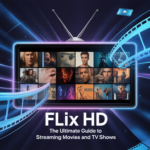The moment those theater lights dim, something shifts inside us. That flicker of anticipation, the silence before the first sound, the sense that we’re about to go somewhere else somewhere far from routine. It’s no surprise that all of us enjoy an excitement of the cinema. But it goes deeper than just watching a story. It’s about immersion, feeling, and losing yourself in something bigger for a little while.
Why Cinema Still Grabs Our Attention
With so many entertainment options today, why do people still flock to movie theaters? It’s because the cinema is designed for one thing: complete, undivided storytelling. No distractions, no multitasking just a story unfolding in front of you, with sights and sounds that wrap around your senses.
Emotion That Sticks
Movies don’t just tell they make you feel. Whether it’s laughter, heartbreak, or suspense, films tap directly into your emotional core. A 2021 study from the American Psychological Association found that watching movies increases neural responses linked to empathy and emotional memory. That’s why certain films stay with us forever they change how we feel about the world.
Feeling Something Together
Even in silence, the people around you matter. That shared laugh, the collective gasp, or the stillness of a dramatic scene builds unspoken unity. Watching a movie together can create memories and feelings that last longer simply because they were experienced in sync with others.
What Sets Cinema Apart?
A Multisensory Journey
Everything about a movie theater is meant to immerse you. The surround sound, the crisp screen, the dark atmosphere they all combine to pull you in. It’s not just watching, it’s experiencing. Studies show that sensory-rich environments help deepen focus and improve how we retain emotional details.
Telling Stories Through Images
Cinematography tells its own story, sometimes even more than the script. Directors use light, shadow, and motion to evoke emotion. A camera’s slow pan, the color of a scene, or a pause in dialogue can say more than words ever could. That’s the strength of visual storytelling it’s deeply human and universally understood.
People Also Ask…
Is cinema still important today?
Absolutely. Streaming can’t replace the full sensory experience of a theater. Dolby, 4DX, and IMAX offer next-level viewing, and films made for theaters often lose impact when watched on a small screen. According to The Numbers, box office trends show that interest in cinema is climbing again, especially with immersive formats.
Are movie theaters outdated?
Not even close. Theaters have evolved offering reclining seats, gourmet snacks, and premium sound systems. They’re not fighting streaming; they’re offering something streaming can’t: total focus. Watching a film in a cinema means setting aside time, attention, and intention. And that changes how we absorb stories.
Isn’t it just nostalgia?
While nostalgia plays a part, modern cinema is thriving on innovation. From indie stories to blockbuster tech, the experience keeps evolving. Many theaters also curate unique screenings, like classic film nights or international film festivals, offering more than just nostalgia they offer discovery.
The Science Behind the Pull
The British Film Institute notes that theater experiences strengthen emotional processing and make stories more memorable. The environment boosts focus, amplifies emotions, and makes each moment feel more personal.
Dopamine and Film Flow
Films are structured in a way that activates dopamine release. The setup builds tension, the climax delivers payoff. That emotional arc is hardwired into our brains. According to Verywell Mind, dopamine is linked to motivation and reward. That’s why a great film feels satisfying long after it ends.
Busting Some Cinema Myths
- “Nobody goes to theaters anymore.” Not true. Global box office numbers keep climbing, especially in premium formats.
- “Streaming is the same.” It’s not. Streaming is passive, interrupted. Cinema is intentional and immersive.
- “It’s old-school.” Modern theaters offer better tech, personalized seating, and curated experiences. It’s not stuck in time it’s evolved.
Real Moments, Real Memories
Everyone has a story about a film that changed them. And those stories usually involve a theater.
“Seeing Dune in IMAX was like being transported to another planet. You don’t just watch it absorbs you.”
“I saw The Lion King with my dad when I was six. The whole memory is still vivid. It wasn’t just a movie, it was a moment.”
These are emotional landmarks, created not just by the story, but by how and where it was experienced.
How to Get More from Your Theater Visits
- Choose smart times. Weekday matinees or late-night shows offer fewer crowds.
- Pick the right people. Go with those who love the experience and won’t pull out their phones mid-scene.
- Experiment with genres. Try something outside your comfort zone foreign films, docs, festival picks.
- Use tech to your advantage. Premium sound and visual formats elevate certain films.
- Go beyond Hollywood. Indie theaters often show gems you’d never see on mainstream platforms.
Accessing More Films Internationally
If some films aren’t available in your region, a VPN can unlock a global library. Using a secure VPN like NordVPN helps you access content across countries without compromising safety. It also helps protect your personal data while you stream.
Timeline: Cinema Through the Ages
| Era | Hallmark | Impact |
|---|---|---|
| Early Cinema (1890s–1920s) | Silent expression | Emotion without language |
| Golden Era (1930s–1950s) | Studio classics | Cinema became cultural core |
| Auteur Phase (1960s–1980s) | Director freedom | Artistic evolution of film |
| Digital Age (1990s–2010s) | CGI + tech | Unleashed storytelling possibilities |
| Streaming Surge (2010s–2020s) | Convenience first | Personalized viewing |
| Immersive Wave (2020s–Now) | VR + enhanced sound | New levels of sensory depth |
In Closing: Why It Still Works
Even in today’s fast-paced, scroll-heavy world, the cinema holds a unique space. It slows you down. It draws you in. And most importantly, it makes you feel. That’s why all of us enjoy an excitement of the cinema not just for the stories, but for the feeling of being there.
In 2025, with all the tech, all the noise, and all the content choices, cinema still matters. It always will.







